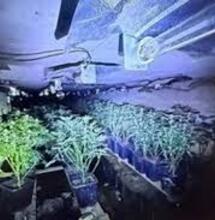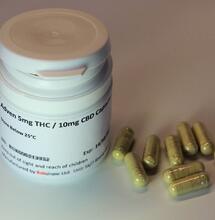Comment: The sloppy journalism which misrepresents cannabis use

Public knowledge of the effects of drugs and drug policy is often ill-served by the the more reactionary voices in the media
Public knowledge of the effects of drugs and drug policy is often ill-served by the the more reactionary voices in the media
The following headlines splashed across the Mail : "The price of going soft on cannabis: Labour's experiment 'pushed up hard drug use and crime", and the Telegraph: "Cannabis use soared by a quarter after Class C downgrade, study finds", and "'Softly softly' cannabis scheme drove up hospital admissions for hard drugs, study".
Yet if you scratch below the surface of these articles - and make the effort to read the research being reported - it quickly becomes clear that the debate is being dramatically distorted by a perfect storm of shaky or incomplete research, and sensationalist reporting.
The rebuttal of "Cannabis use soared by a quarter" is a simple one. The study which led to this misunderstanding looked at the result of the downgrading of cannabis from Class B to Class C, investigating whether there were changes in cannabis consumption as a result, and whether cannabis use was associated with other criminality and use of other drugs. One of the paper's authors, Dr. Nils Braakmann, issued a rather withering statement. It's not greatly enlightening as to what his research did actually discover, but I shall paraphrase it thus: "This reporting was plain wrong. How could you not know the difference between absolute and relative increases in cannabis consumption? I haven't finished my research yet. I'll call you when I do."
The evidence up until now has indicated that reclassifying cannabis didn't seem to affect use levels at all. What Dr. Braakmann's research will contribute to the evidence base remains to be seen. Perhaps he - understandably - hadn't prepared his findings for an audience of layperson reporters, but that doesn't mean we can forgive the Telegraph reporter for interpreting his findings as a sensational headline with no basis in fact.
One thing that is clear from reading the paper is that they found no evidence of the "gateway theory" that use of cannabis would lead to use of other 'harder' drugs. This is of course problematic for the Daily Mail's combined reporting of the two research studies proclaiming "Labour's experiment pushed up hard drug use". It should also cause the authors of the second referenced study to take a long, hard look at themselves.
The second study referenced in the newspapers looked into the 2001 experiment in Lambeth during which police were instructed to stop arresting individuals for simple cannabis possession offences. Ironically perhaps, the experiment started as a response to public demand for a greater police focus on drugs like heroin and crack. In the abstract of the paper is the following sentence: "We find the depenalization of cannabis had significant longer term impacts on hospital admissions related to the use of hard drugs." There is no attempt to acknowledge that the association between depenalization and hospital admissions may be coincidental or due to other factors ‘confounding variables' (the old 'correlation, not causation' chestnut), and there is no hint of any attempt to gain an understanding of the changing face of drug use and service provision within London and Lambeth at the time.
Perhaps due to an absence of expert peer review the authors have failed to recognise the importance of the serious escalation in crack use in London that helped create the demand for the Lambeth experiment in the first place. They have also failed to see how it would have been better practice to compare Lambeth's hospital admission rates with those of boroughs with similar drug use issues rather than a London wide average. To include leafy boroughs like Richmond and Bromley in their comparisons was completely inappropriate.
But most importantly, had they talked to any Lambeth drug workers, they might have discovered a far more plausible reason for an escalation in hospital admissions in the borough related to hard drug use.
In the year of the Lambeth cannabis experiment, a needle exchange programme called Mainliners was also set up in the borough. One of the main priorities of the programme was to encourage hard drug users to go to hospital for treatment for their serious health conditions.
So rather than the take home message of this research being: "'softly softly' cannabis scheme drove up hospital admissions for hard drugs", perhaps the headline should have been: "needle exchange programme does fantastic job of engaging marginalised drug users with health services."
If the headline was to be extended to include reference to the cannabis depenalisation experiment and its effects upon crime in Lambeth it perhaps should read: "...and softly softly approach to cannabis led to reductions in other crimes and improved arrest and clear-up rates". These were the conclusions of another research article that was cited by both of the studies reported on Friday. As expected, regarding cannabis possession as a non-priority allowed the police to spend more time and achieve better results in addressing other criminal activity.
If a media outlet is determined to portray a policy in a bad light it is all too easy to cherry pick poor outcomes (real or not) and ignore the positives. Few readers will be any wiser.
The debate has in fact moved on in the last 10 years. The question is not now whether we enforce the cannabis laws, but whether we fully legalise, regulate it, and sell it on the high street. Arguably more relevant is the experience of licensed and regulated cannabis ‘coffee shops' in the Netherlands, This system has taken cannabis out of the hands of street dealers who might seek to supply other 'harder' drugs, dramatically weakening the link between cannabis use and the use of these drugs.
In fact, the Braakmann paper also hints at yet more advantages to legalising and regulating cannabis. Whilst they didn't find that cannabis was a 'gateway drug', there were suggestions in their findings that it might be a 'gateway crime' (my terminology). In their conclusion they state that for some users: "those coming from 'troubled' backgrounds ... cannabis consumption has adverse effects, in the sense of reinforcing pre-existing bad behaviour."
Is it possible that the act of committing a crime in using cannabis reinforces an identity of outlaw and delinquent in young people, making it more like for them to develop other antisocial behaviours? If so, is this an argument against cannabis use or an argument against its illegality? Would legalising cannabis lead to a more sensible alignment of moral and criminal boundaries? Would it cause it to be harder for young people to break through those boundaries and be 'bad' in the eyes of society and when they look at themselves in the mirror? I think on balance it would.
Who knew that behind those headlines we'd find yet more reasons to legalise and regulate the cannabis market, and possible evidence of a very successful harm reduction service? These may in fact prove useful lessons for the future, but the larger message of this episode is to remind us how bad science and politicisation of drug policy reporting has been a key factor in maintaining the failed policies of prohibition.
http://www.politics.co.uk 07/04/2013



